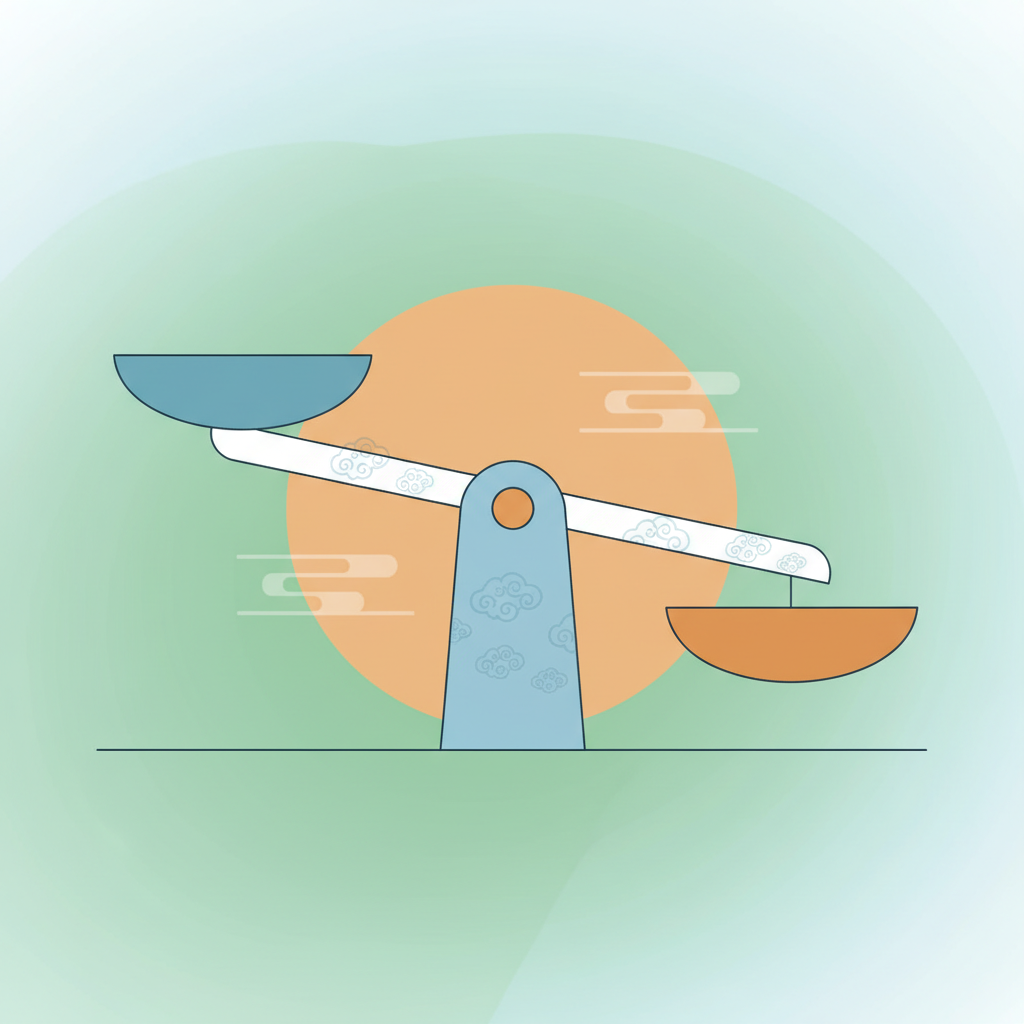⚖️ Comparativo con 比 (bǐ): Más que / Menos que

📘 Explicación gramatical
La estructura comparativa con 比 (bǐ) se usa para indicar que "A es más [adjetivo] que B". La fórmula es sencilla: A + 比 + B + Adjetivo. Por ejemplo, "Mi casa es más grande que la tuya". La forma negativa, en cambio, no usa 比, sino 没有 (méiyǒu), siguiendo la estructura A + 没有 + B + Adjetivo, que se traduce como "A no es tan [adjetivo] como B". Para especificar el grado de la diferencia en las frases con 比, podemos añadir complementos como 一点儿 (yìdiǎnr) para una diferencia pequeña ("un poco más") o 得多 (de duō) para una diferencia grande ("mucho más") justo después del adjetivo.
📘 Grammar Explanation
The comparative structure with 比 (bǐ) is used to indicate that "A is more [adjective] than B". The formula is simple: A + 比 + B + Adjective. For example, "My house is bigger than yours". The negative form, however, doesn't use 比, but 没有 (méiyǒu), following the structure A + 没有 + B + Adjective, which translates as "A is not as [adjective] as B". To specify the degree of difference in sentences with 比, we can add complements like 一点儿 (yìdiǎnr) for a small difference ("a little more") or 得多 (de duō) for a large difference ("much more") right after the adjective.
📚 Key Phrase: 我的手机比你的手机新。 (Wǒ de shǒujī bǐ nǐ de shǒujī xīn.)
Grammar Focus
📝 Grammar Structure
- Comparativo afirmativo: A + 比 + B + Adjetivo
- Comparativo negativo: A + 没有 + B + Adjetivo
- Con grado de diferencia: A + 比 + B + Adjetivo + Complemento
Usos Principales:
- Comparación básica:
- • 我的手机比你的手机新。(Wǒ de shǒujī bǐ nǐ de shǒujī xīn.) - Mi móvil es más nuevo que el tuyo.
- • 今天没有昨天那么热。(Jīntiān méiyǒu zuótiān nàme rè.) - Hoy no hace tanto calor como ayer.
- Con grado de diferencia:
- • 坐火车比坐飞机便宜一点儿。(Zuò huǒchē bǐ zuò fēijī piányi yìdiǎnr.) - Viajar en tren es un poco más barato que en avión.
- • 这个电影比那个电影有意思得多。(Zhège diànyǐng bǐ nàge diànyǐng yǒuyìsi de duō.) - Esta película es mucho más interesante que aquella.
- Con números específicos:
- • 他比我大三岁。(Tā bǐ wǒ dà sān suì.) - Él es tres años mayor que yo.
- • 哥哥的字比我的字好看一些。(Gēge de zì bǐ wǒ de zì hǎokàn yìxiē.) - La caligrafía de mi hermano mayor es un poco más bonita que la mía.
💡 Key Points
- • 比 (bǐ) siempre va entre los dos elementos que se comparan.
- • La forma negativa usa 没有 (méiyǒu) en lugar de 比 (bǐ).
- • Los complementos de grado van después del adjetivo.
- • 一点儿 (yìdiǎnr) = "un poco", 得多 (de duō) = "mucho".
📝 Grammar Structure
- Affirmative comparison: A + 比 + B + Adjective
- Negative comparison: A + 没有 + B + Adjective
- With degree of difference: A + 比 + B + Adjective + Complement
Main Uses:
- Basic comparison:
- • 我的手机比你的手机新。(Wǒ de shǒujī bǐ nǐ de shǒujī xīn.) - My phone is newer than yours.
- • 今天没有昨天那么热。(Jīntiān méiyǒu zuótiān nàme rè.) - Today is not as hot as yesterday.
- With degree of difference:
- • 坐火车比坐飞机便宜一点儿。(Zuò huǒchē bǐ zuò fēijī piányi yìdiǎnr.) - Taking the train is a little cheaper than flying.
- • 这个电影比那个电影有意思得多。(Zhège diànyǐng bǐ nàge diànyǐng yǒuyìsi de duō.) - This movie is much more interesting than that one.
- With specific numbers:
- • 他比我大三岁。(Tā bǐ wǒ dà sān suì.) - He is three years older than me.
- • 哥哥的字比我的字好看一些。(Gēge de zì bǐ wǒ de zì hǎokàn yìxiē.) - My older brother's handwriting is a little prettier than mine.
💡 Key Points
- • 比 (bǐ) always goes between the two elements being compared.
- • The negative form uses 没有 (méiyǒu) instead of 比 (bǐ).
- • Degree complements go after the adjective.
- • 一点儿 (yìdiǎnr) = "a little", 得多 (de duō) = "much".
📚 Key Vocabulary | Vocabulario Clave
🇪🇸 Español
Estudia estas palabras clave antes de practicar las frases completas.
🇬🇧 English
Study these key words before practicing the complete phrases.
词汇 Vocabulary
文化 Cultural Insights
🌸 Reflexión cultural
En China, la comparación directa con 比 (bǐ), especialmente entre personas, puede considerarse algo brusca. Por ello, es muy común suavizar la comunicación utilizando la forma negativa 没有 (méiyǒu). Decir "él no es tan alto como tú" (他没有你高) es a menudo más cortés y diplomático que afirmar directamente "tú eres más alto que él" (你比他高). Esta preferencia por la indirección busca mantener la armonía social y evitar hacer que alguien "pierda la cara" (丢面子, diū miànzi), un contraste interesante con la comunicación a menudo más directa de España.
🌸 Cultural Insight
In China, direct comparison with 比 (bǐ), especially between people, can be considered somewhat blunt. Therefore, it is very common to soften communication by using the negative form 没有 (méiyǒu). Saying "he is not as tall as you" (他没有你高) is often more polite and diplomatic than directly stating "you are taller than him" (你比他高). This preference for indirectness seeks to maintain social harmony and avoid making someone "lose face" (丢面子, diū miànzi), an interesting contrast with the often more direct communication in Spain.
作业 Homework & Practice
📝 Homework & Practice
Instrucciones: Crea 5 frases usando la estructura comparativa con 比 (bǐ). Debes incluir al menos 2 frases afirmativas con 比, 2 frases negativas con 没有, y 1 frase con grado de diferencia (一点儿 o 得多).
Ejemplos:
📝 Homework & Practice
Instructions: Create 5 sentences using the comparative structure with 比 (bǐ). You must include at least 2 affirmative sentences with 比, 2 negative sentences with 没有, and 1 sentence with degree of difference (一点儿 or 得多).
Examples:
Practice Checklist:
Ready for More?
Continue your Chinese learning journey with live classes on TikTok. Join thousands of students learning Mandarin every day!
Join Live Classes